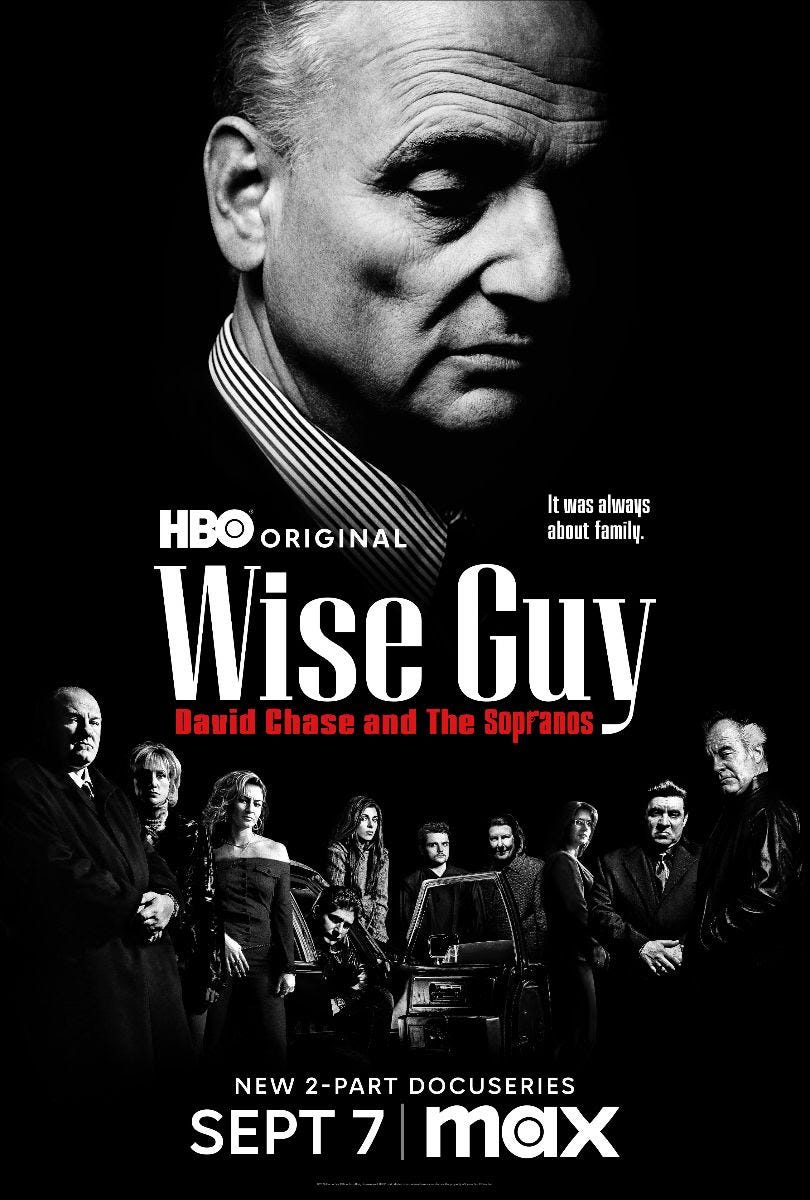‘Wise Guy’ is some warmed-over analysis of 'The Sopranos'
In Alex Gibney’s documentary, David Chase looks back on the groundbreaking show- and doesn’t say much he hasn’t said before.
The Sopranos, although it’s quite possibly the most acclaimed and influential prestige TV show of the new millennium, hasn’t proved expandable as a franchise. That’s not to hold anything against it, and the show holds up wonderfully.
But after its 2021 prequel movie, The Many Saints of Newark, didn’t make much of an impression, we’re probably not getting any more new canonical Sopranos content. So HBO has opted for the next best thing: A Sopranos documentary.
Wise Guy: David Chase and The Sopranos, which premiered at the Tribeca Film Festival last spring and landed on HBO and Max last weekend, has a simple conceit: The prolific documentarian Alex Gibney sets in a mockup of the set of Dr. Melfi’s office, interviewing David Chase, the creator of the show.
For more than two and a half hours throughout two parts, the two discuss Chase’s life, career, and upbringing, leading into the run of The Sopranos from 1999 through 2017 (the doc is in conjunction with the show’s 20th anniversary). This is all punctuated with clips from the show and some interviews with actors and behind-the-scenes people from The Sopranos.
A few main subjects come up repeatedly: Chase didn’t get along with his mother, who inspired Livia Soprano. Multiple networks rejected the show, and even when it got to HBO, there was pushback from network suits to certain violence, especially in the early scene when Tony kills a mob snitch while on a college visit with his daughter. And then, the show gained unprecedented acclaim and attention.
Also, James Gandolfini was considerably more troubled than was publicly known during the show’s run; while giving one of the best performances in the history of television, Gandolfini was also battling substance abuse problems and regularly threatening to quit the show. And yes, there is discussion of the show’s infamous ending, although if you’re expecting any new clarity on whether or not Tony died, you must not know David Chase all that well.
Many Saints of Newark is not mentioned a single time, and Chase does not mention that The Sopranos is the only TV show he has ever created.
A lot of this is fascinating, and fans of the show will probably enjoy the chance to revisit all this. But all that said- there’s not much new here. If you’re even a bit of a Sopranos fan, chances are you already knew all this. This has occasionally been a knock on Gibney as a filmmaker, that he doesn’t always dig deeper into the subject beyond what was public already.
If you’ve read The Sopranos Sessions, the book by Matt Zoller Seitz and Alan Sepinwall, chances are you knew all this and much more. I’d recommend My Dinner With Alan — the documentary featuring the two TV critics discussing the show and their friendship at Holsten’s, the diner from the finale — over the Gibney/Chase version. That’s now streaming for free on Tubi.
Chase also briefly mentions the show’s “bad fan” problem, in which certain fans could not enjoy any episode that didn’t involve “whacking.” At the same time, Edie Falco makes a crack about how some of the more violent episodes, including the one where Ralphie beats a stripper to death, didn’t require a “trigger warning,” seemingly forgetting that every single episode of the series had one, and it looked like this:
Gibney did a much better job with In Restless Dreams: The Music of Paul Simon, the three-and-a-half-hour doc about the life of Paul Simon that I finally got to watch this week. It covered everything, from Simon and Garfunkel to his SNL history to the Graceland/South Africa controversy, while also getting his subject to shed some light on many different subjects.





